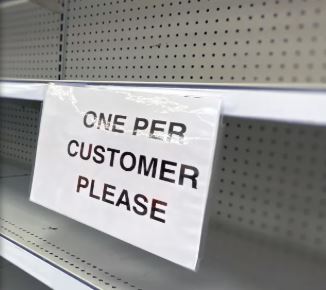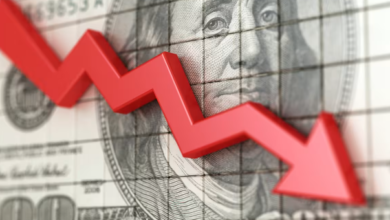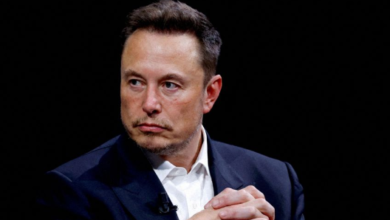
One in five Americans say they are increasing their purchases due to concerns over President Donald Trump’s tariffs, according to a new CreditCards.com report released Tuesday. The findings highlight growing consumer fears over rising prices and economic uncertainty, driving behaviors such as stockpiling essential goods and engaging in “doom spending.”
Tariffs Fuel Inflation Concerns and Panic Buying
Tariffs typically increase the cost of imported goods, forcing businesses to either absorb higher costs or pass them on to consumers through price hikes. This has led to stockpiling of non-perishable food, toilet paper, and medical supplies, as shoppers try to lock in lower prices before costs climb further.
The report found that:
- 22% of respondents said Trump’s tariffs had a significant impact on their large purchase decisions.
- 30% reported some level of impact, indicating widespread economic concern.
- 23% of Americans expect to go deeper into credit card debt this year, as inflation fears drive increased spending.
‘Doom Spending’ Rises Amid Economic Uncertainty
A growing number of consumers are engaging in “doom spending”—a trend where people make excessive or impulsive purchases due to financial anxiety. The report revealed that one in five Americans describe their recent shopping habits as doom spending, triggered by:
- Economic instability and inflation fears
- Geopolitical tensions affecting global trade
- Uncertainty over Trump’s shifting tariff policies
Wall Street and Business Leaders React
Financial markets are on edge, with Wall Street worried that tariffs could accelerate inflation, stall Federal Reserve interest rate cuts, and slow economic growth. Some corporate executives have told Reuters that Trump’s unpredictable tariff policies disrupt global trade and could force companies to move production back to the U.S. to avoid higher import costs.
What’s Next for Consumers and the Economy?
With ongoing trade uncertainty, consumer spending habits are expected to remain volatile, especially as tariff-related price hikes impact household budgets. As businesses and consumers brace for potential economic shifts, financial analysts warn that panic-driven spending could further strain household debt and long-term financial stability.





